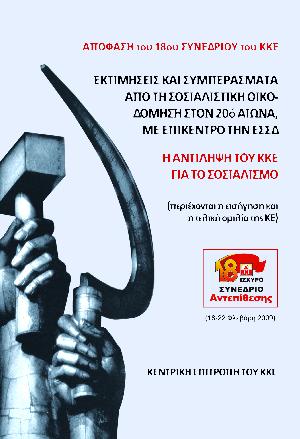The following is the Resolution of the 18th Congress of the KKE (held on February 2009), containing assessments and conclusions on socialist construction during the 20th century, focusing on the USSR.
The 18th Congress of KKE, fulfilling the task set forward by the 17th Congress four years ago, dwelled deeper into the causes of the victory of the counterrevolution and of capitalist restoration. This has been an imperative and timely obligation for our Party, as it is for every Communist Party. It was thus that we faced this task during all the years that have elapsed since the 14th Congress and the National Conference of 1995. It is a task interlinked with the revival of consciousness and of faith in socialism.
For more than a century now, bourgeois polemics against the communist movement, often assuming the form of an intellectual elitism, concentrate their fire on the revolutionary core of the workers’ movement; they struggle, in general, against the necessity of revolution and its political offspring, the dictatorship of the proletariat that is the revolutionary working class power. In particular, they fight against the outcome of the first victorious revolution, of the October Revolution in Russia, fiercely opposing every phase where the Revolution exposed and repelled counterrevolutionary activities and opportunist barriers, which, in the final analysis, were weakening, directly or indirectly, the Revolution at a social and political level.










